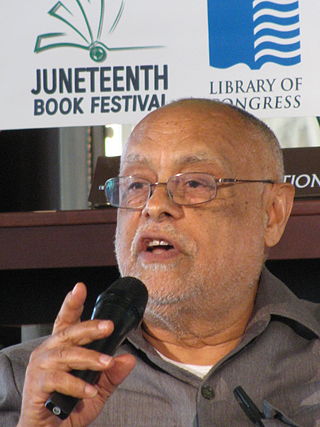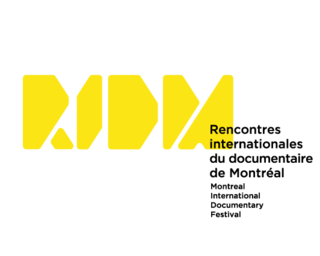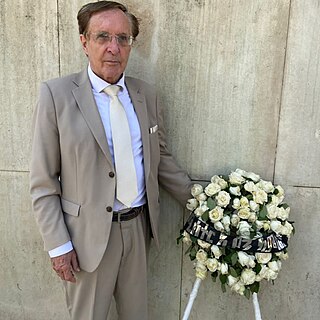
A film festival is an organized, extended presentation of films in one or more cinemas or screening venues, usually in a single city or region. Increasingly, film festivals show some films outdoors. Films may be of recent date and depending upon the festival's focus, can include International and Domestic releases. Some film festivals focus on a specific filmmaker, genre of film, or subject matter. Several film festivals focus solely on presenting short films of a defined maximum length. Film festivals are typically annual events. Some film historians, including Jerry Beck, do not consider film festivals as official releases of the film.

Ethiopia, officially the Federal Democratic Republic of Ethiopia, is a country located in the Horn of Africa region of East Africa. It shares borders with Eritrea to the north, Djibouti to the northeast, Somalia to the Northeast, East and Southeast, Kenya to the South, South Sudan to the West, and Sudan to the Northwest. Ethiopia covers a land area of 1,112,000 square kilometres. As of 2023, it is home to around 128 million inhabitants, making it the 13th-most populous country in the world, the 2nd-most populous in Africa after Nigeria, and the most populated landlocked country on Earth. The national capital and largest city, Addis Ababa, lies several kilometres west of the East African Rift that splits the country into the African and Somali tectonic plates.

Cinema of Africa covers both the history and present of the making or screening of films on the African continent, and also refers to the persons involved in this form of audiovisual culture. It dates back to the early 20th century, when film reels were the primary cinematic technology in use. During the colonial era, African life was shown only by the work of white, colonial, Western filmmakers, who depicted Africans in a negative fashion, as exotic "others". As there are more than 50 countries with audiovisual traditions, there is no one single 'African cinema'. Both historically and culturally, there are major regional differences between North African and sub-Saharan cinemas, and between the cinemas of different countries.

Haile Gerima is an Ethiopian filmmaker who lives and works in the United States. He is a leading member of the L.A. Rebellion film movement, also known as the Los Angeles School of Black Filmmakers. Since 1975, Haile has been a film professor at Howard University in Washington, D.C. He is best known for Sankofa (1993), which won two awards.
The Alexandria International Film Festival for Mediterranean Countries (AIFF) is a film festival in Alexandria, Egypt. It was established in 1979. The festival is organized by the Egyptian Association of Film Writers and Critics (EAFWC).

The Montreal International Documentary Festival is a Canadian documentary film festival, staged annually in Montreal, Quebec.
Michael Tsegaye is an Ethiopian artist and photographer. Much of his work presents a glimpse of life in contemporary Ethiopia, although an extended catalogue of his images come from his travels abroad.

Africadoc is a network of documentary filmmakers and associations in Africa organized by Ardèche Images and since 2012 by Docmonde. It includes associations in Benin, Burkina Faso, Cameroon, Republic of the Congo, Mali, Mauritania, Niger, Senegal and Togo. Some of the associations run workshops in documentary writing and production.
A growing number of film festivals are held in the Arab world to showcase films from the region as well as international standouts. In addition, institutions and organizations in other parts of the world are increasingly honoring the new generation of filmmakers in the Arab world with Arab film festivals.

The Cinema of Ethiopia and the film industry in general are relatively recent phenomena in Ethiopia. The Ethiopian film industry is growing but faces many problems that have prevented it from fully flourishing. Historically, live stage theater enjoyed more popularity in Ethiopia, creating a handful of relatively successful stage actors. Ethiopian films began modernizing in the 2000s, implementing Amharic, but due to wide home video and DVD distribution, they are often frustrated by copyright infringement in the presence of piracy. This was reduced in the early 2010s with the intervention of the government and the imposition of policy. Despite recent developments, the Ethiopian film industry continues to lack quality compared to modern world cinema and has a low budget amateurish style.
Salem Mekuria is an Ethiopian-born independent filmmaker, video artist and educator living in the United States.

The Anchorage International Film Festival(AIFF) is the largest film festival in Alaska. It is held annually in Anchorage.
Cinema of Sudan refers to both the history and present of the making or screening of films in cinemas or film festivals, as well as to the persons involved in this form of audiovisual culture of the Sudan and its history from the late nineteenth century onwards. It began with cinematography during the British colonial presence in 1897 and developed along with advances in film technology during the twentieth century.
Adanech Admassu is an Ethiopian filmmaker. The central axes of her work are cooperating with NGO programs in Ethiopia and addressing public health and human rights problems in Ethiopia and across Africa, with a focus on stories of girls and women. With Gem TV, she has produced many films about everyday life in the communities.

Tajouje is a 1977 Sudanese historical romance film directed by Gadalla Gubara, who considered it his best cinematographic work. It was the first feature film directed by a Sudanese filmmaker. It presents a dramatic story about the unhappy love of two suitors towards the heroine Tajouj. Set in rural Eastern Sudan, it featured the actor Salah ibn Albadya, who was also known for his songs of popular urban music in Sudan.

Ian Leslie Campbell is a British historian specialising in Ethiopia with a focus on the Italian occupation of Ethiopia. During his career, he worked together with Ethiopianist Richard Pankhurst.
Sebastopol Cinema is a movie theatre in Addis Ababa, Ethiopia situated near to Hol-Zee Traditional Restaurant and close to Hall 1, in Arada district. It is owned by Sebastopol Entertainment PLC, which is owned by filmmaker Theodros Teshome. Sebastopol has three screens and executively for Ethiopian films. It is also home of Addis International Film Festival.

The Ethiopian International Film Festival (EIFF) is an Ethiopian film festival that began in 2005 and organized by Linkage Arts Resource Center annually in Addis Ababa. Like to Addis International Film Festival, the EIFF aimed toward Ethiopian and African film industry.
Talal Afifi is a Sudanese film curator and producer. Further, he is the director of the Khartoum-based Sudan Film Factory as well as of the Sudan Independent Film Festival and has helped train a new generation of Sudanese filmmakers since 2009.
Abraham "Abiyi" Ford (1935–2018) was an Ethiopian-American film educator and filmmaker.











